A Soldier's Mission to Honor Segregated 65th Regiment 'Borinqueneers'
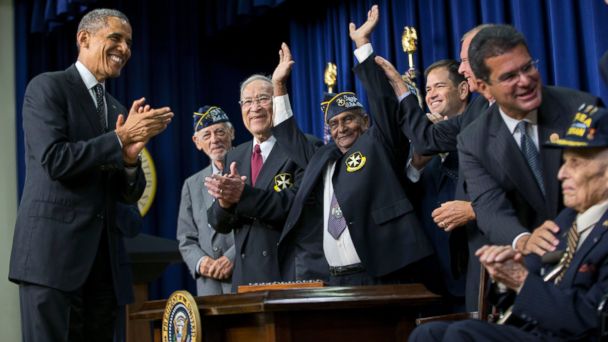
President Obama applauds after signing bill to award Congressional Gold Medal to the 65th Infantry Regiment, known as the Borinqueneers, June 10, 2014, at the White House. (Photo Credit: Pablo Martinez Monsivais/AP Photo
WASHINGTON - Former Army Capt. Frank Medina first heard about the segregated 65 th Infantry Regiment as a child from his Korean War veteran grandfather, who talked about the discrimination he and his fellow Puerto Rican "Borinqueneers'" faced in the U.S. military.
"I remember his stories and some of the difficulties he faced," Medina, 34, said of his abuelo, Efraín Medina who passed away a couple of years ago. "I didn't know the cultural context and significance they played in the Korean War but also in Puerto Rico's history at the time."
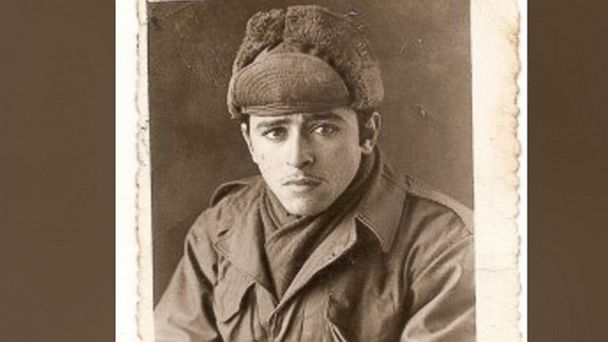
Frank Medina's grandfather Efrain Medina of the 65th Infantry Regiment. (Courtesy: Frank Medina)
Well, the regiment has finally received its due, now that President Obama has awarded the Congressional Gold Medal to the U.S. Army's 65 th Infantry Regiment, a unit of mainly Puerto Rican soldiers.
The regiment, nicknamed "The Borinqueneers" (bohr-ehn-kin-'EERS) for the original Taino indigenous name of the island Borinquen, received one of the nation's highest honors Tuesday, 55 years after it disbanded. "It is a proud day for the Borinqueneers and their families," Obama said at the ceremony. "It is a proud day for all whose lives they saved and the freedom they defended."
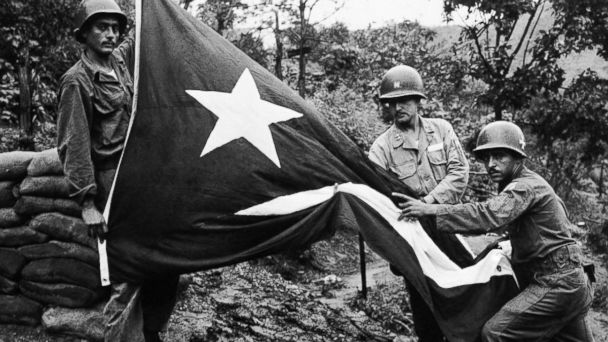
A bullet-ridden Puerto Rican flag is seen in this undated photo provided by the Borinqueneers Congressional Gold Medal Alliance.
Surrounded by several Borinqueneers, the president signed into law the "The Borinqueneers Congressional Gold Medal Act" (H.R.1726). The bipartisan effort to award the Congressional Gold Medal was led by U.S. Resident Commissioner Pedro Pierluisi, D-P.R., Rep. Bill Posey, R-Fla., and Sen. Richard Blumenthal, D-Conn.. Frank Medina, a veteran of the Iraq War, was the driving force behind the effort to pass the bill to recognize the 65 th regiment for their service and sacrifice.
Originally from Ponce, Puerto Rico, Frank Medina, 34, came to the United States as a child and grew up in Bridgeport, Connecticut.
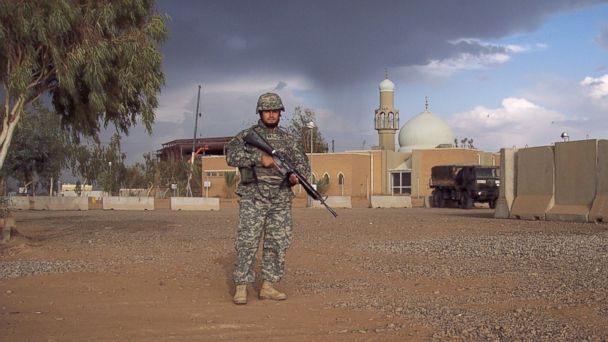
Former U.S. Army Captain Frank Medina is pictured during his service in Iraq. (Photo Credit: Frank Medina)
The 65th regiment was a segregated Army unit like the Tuskegee Airmen, Nisei Japanese Soldiers, Navajo Code Talkers and Montford Point Marines and it distinguished itself in World War I, World War II and the Korean War despite the discrimination they faced. "The troops of the 65th experienced segregation that set them apart from their fellow soldiers, but their courage made them legendary," Obama said.
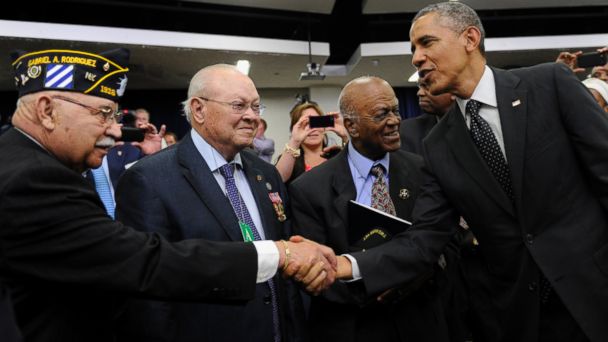
President Obama shakes hands with Borinqueneer Juan E. Negron following a ceremony awarding a Congressional Gold Medal to the 65th Infantry Regiment. (Photo Credit: Susan Walsh/AP Photo)
Medina, a West Point graduate, founded the Borinqueneers Congressional Gold Medal Alliance in 2012 as an all-volunteer group of individuals and organizations dedicated to achieving the Congressional Gold Medal for the 65 th. Medina's experiences in the military prepared him to adapt and tackle the challenges, he says. Driven by selfless service, he was inspired by the 65 th regiment and has made it his mission since to honor these soldiers.
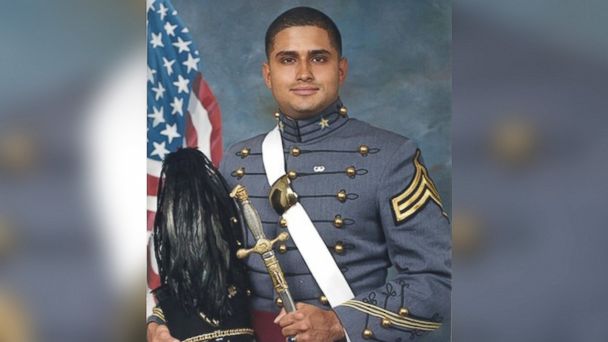
Frank Medina is seen in his West Point Graduation picture. (Courtesy: Frank Medina)
The 65th participated in the Battle of Pusan Perimeter and provided vital support for the Marines' withdrawal from the Battle of Chosin Reservoir in Korea. During WWI and WWII, they were limited to security and support roles because at that time the Army kept them from fighting in the front lines. But it was during the Korean War where they performed their pinnacle military achievements. They earned 9 Distinguished Service Crosses, 258 Silver Stars, 628 Bronze Stars and 2,771 Purple Hearts.
Medina's decision to take it upon himself to bring recognition to the 65 th happened after he went to a service academy minority alumni reunion where he met a member of the 65th Infantry Regiment named Raúl Reyes Castañeira. Reyes Castañeira, a Korean War vet, is considered the "Saving Private Ryan" of the 65th, being the youngest of four brothers who served in Korea with the regiment.
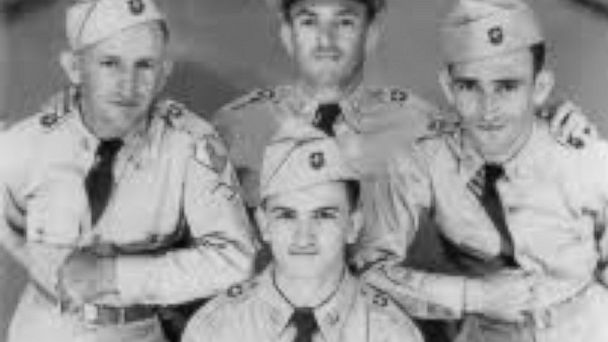
Raúl Reyes Castañeiral, seated center, is considered the "Saving Private Ryan" of the 65th as the youngest of four brothers who served in Korea with the regiment. (Courtesy: Borinqueneers Congressional Gold Medal Alliance / US ARMY)
"When I saw this correspondence, I was like, 'Wait a minute, why not bring the 65 th infantry regiment Borinqueneers; my grandfather was part of this unit,'" says Medina. While they were taking photographs at the event, Reyes Castañeira asked Medina, "that Marine right there has a Montford Point gold medal, how can we get one?" It was then that Medina decided to take action.
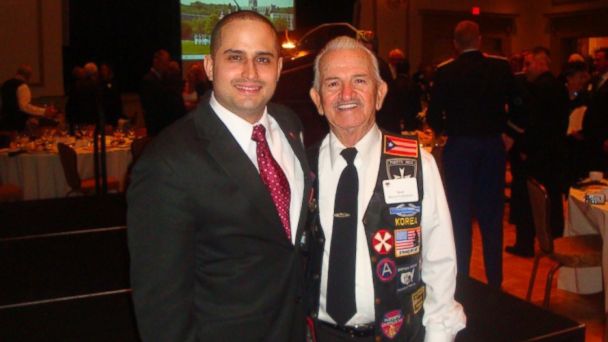
Frank Medina poses with with Raúl Reyes Castañeira at the West Point Society of Tampa Alumni Dinner in March 2013. (Courtesy: Frank Medina)
"Being the soldier that I was, I wanted to live up to my potential after leaving the academy," he said Ever since, Medina has been on a mission to get Congress to pass the bill. When Medina started the Congressional Medal initiative, he says, there was an ambitious schedule. He reached out to veteran organizations across the country to identify and locate living 65 th regiment members. "It was a collective and cumulative effort around the country, a lot of persistence from folks of all different races, ethnicity and gender that put their part," he said. Medina says that one of the most challenging things for him was to explain the concept of the Congressional Gold medal to people.
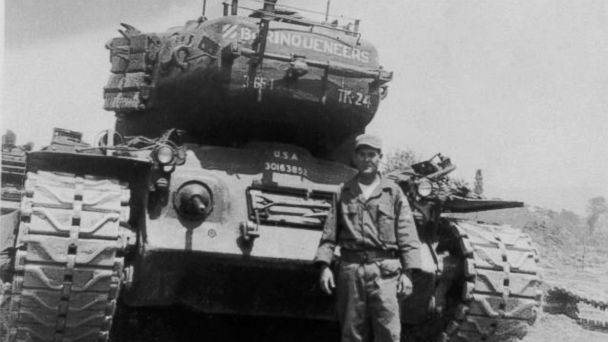
A Borinqueneers tank is seen in this undated handout photo provided by the Borinqueneers Congressional Gold Medal Alliance.
The 65 th was established in 1898 shortly after Spain ceded Puerto Rico to the United States. More than 62,000 Puerto Ricans joined the military during World War II, and over 43,000 Puerto Ricans served in the Korean War. "These veterans are in their latest stages in life and we want to make sure that their service was not in vain and to serve as vindication and as emotional closure for a lot of hardships and maybe injustices that they went through," Medina, who lives in Orlando, Florida, said.
The treatment of soldiers in the 65 th regiment, which deactivated in 1956, was a factor in the decision by Congress to include an amendment in the National Defense Authorization Act to review service records of Hispanic-American and Jewish-American who might have been denied the Medal of Honor because of prejudice or discrimination in WWII, the Korean War and the Vietnam War. Juan E. Negrón was the first Borinqueneers to be awarded the Medal of Honor back in March after a review.
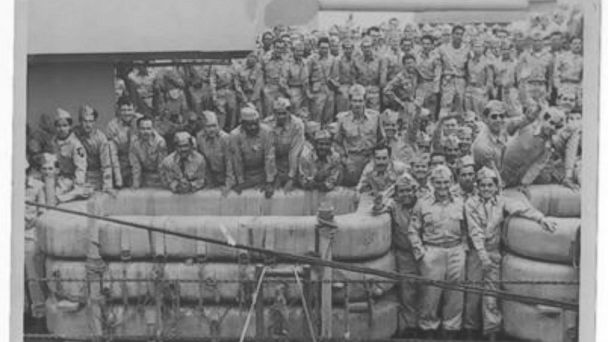
The Borinqueneers Congressional Gold Medal Alliance provided this undated group photo of the 65th Infantry Regiment.
For Medina, it was important that the 65 th infantry regiment to receive the Congressional Gold Medal. "I think we need to weave the contributions of not only Hispanic veterans but all Hispanics into the fabric of American culture. We definitively need to leave a positive image," he added.
To have the Congressional Gold Medal legislation signed by the president closes a chapter in American history, Medina says. "The Congressional Gold Medal brings a good chapter in our nation's history just like we have readdressed other unjust episodes in our history. It was an educational experience for me about leadership, people and society," he said. "It was a great fulfilling moment and pinnacle moment not only for Latino soldiers but in Latino history, Puerto Rico but in American history as well."
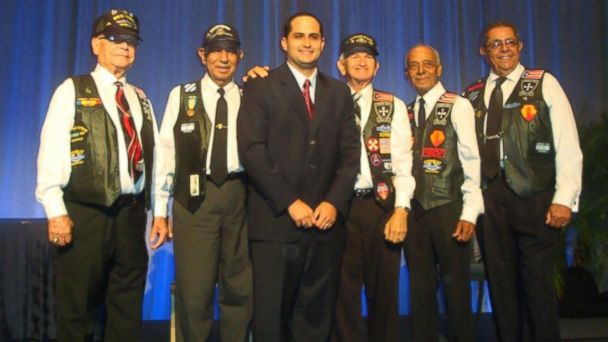
Frank Medina is pictured with several Borinqueneers, veterans of the U.S. Army's 65th Infantry Regiment, in 2013. (Courtesy: Frank Medina)
The Borinqueneers themselves are equally proud, he says. "They were excited to receive the medal. Some of them are still star struck, they still can't believe it," he added. "Some of them have seen a lot of their comrades pass away in battle, others have been injured and a lot of them feel a sense of closure."
Second Tour is an ABC News digital series profiling the lives of military veterans who are doing unique things in the civilian world. For more stories, click here.
ABC News' Washington Bureau Caleb Jackson, Kyle Blaine and Sue Blasberg (camera) and video editor Arthur Niemynski contributed to this report.